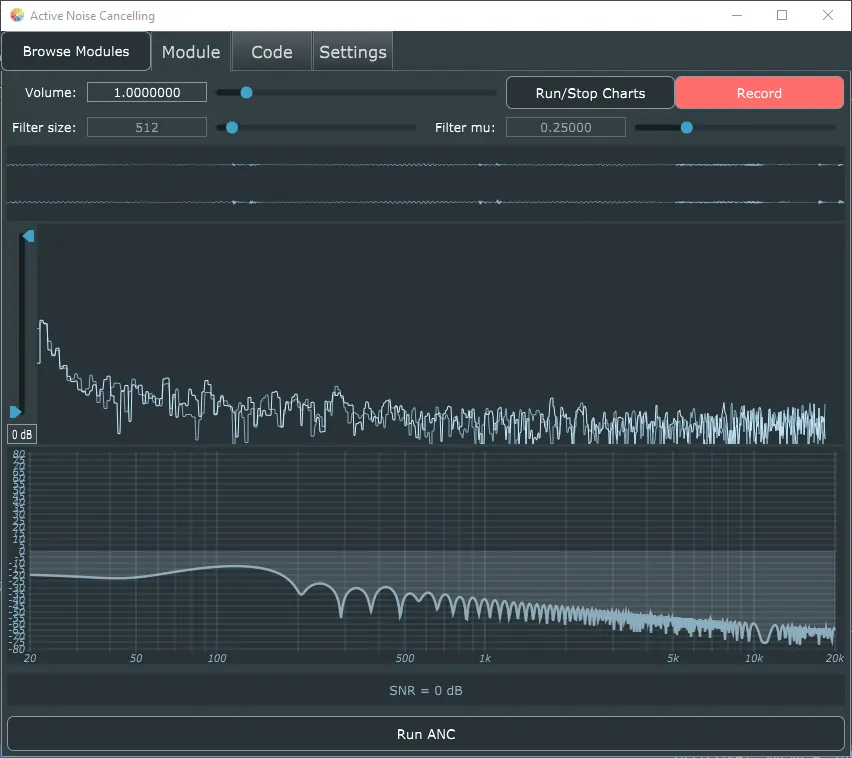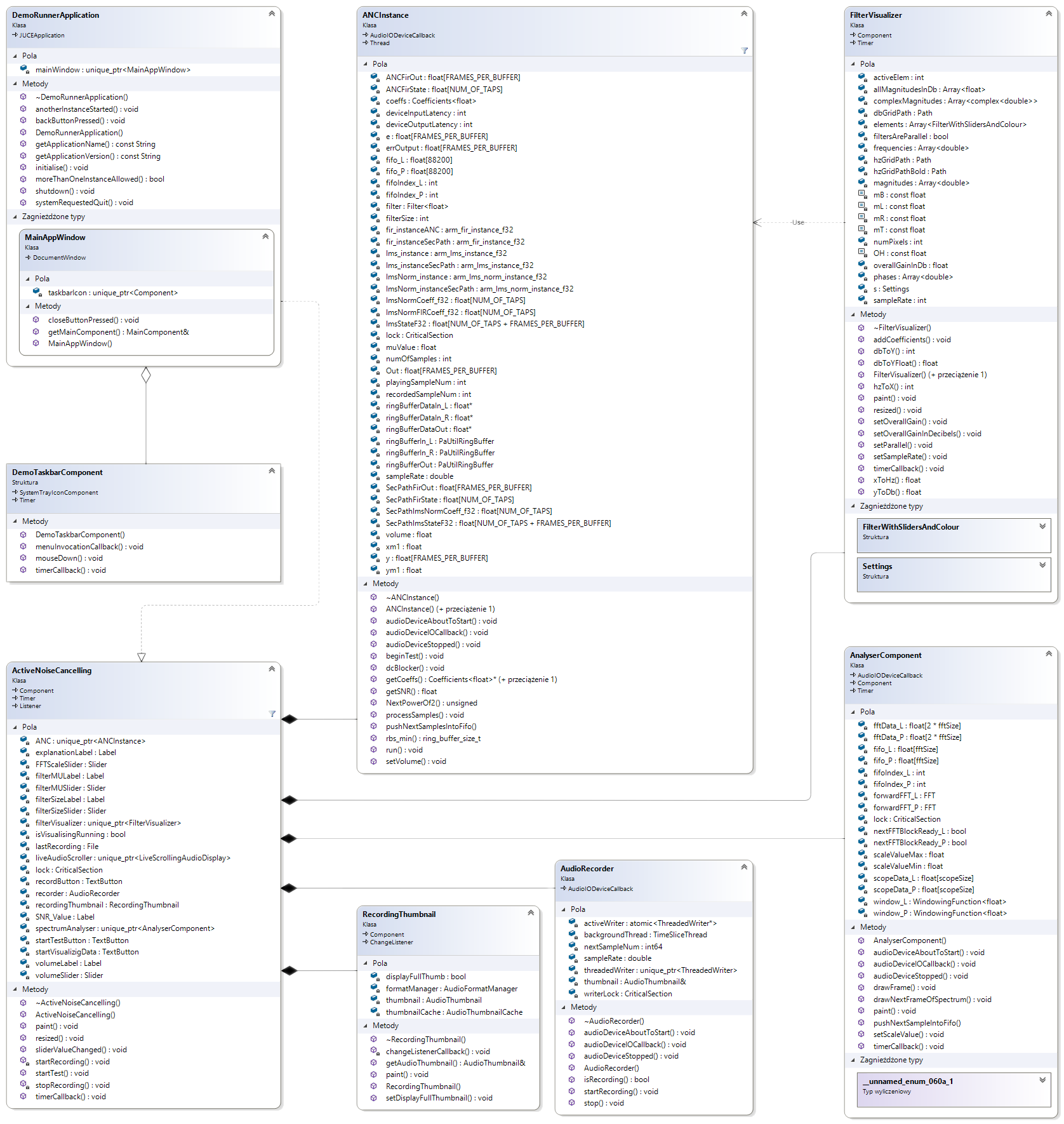This is: Active Noise Cancellation
Now for your Raspberry

This project is just proof-of-concept. Do not see it as complete daily-use application
Whole application is based on JUCE's DemoRunner application. This is because it is convienient to be able to change sound cards without changing the code. Also with this solition I could implement additions such as adaptive filter visualizer or FFT visualizer. To be able to reduct noise I used FxLMS algorithm. I based the algorithm on ARM CMSIS DSP functions but I need to modify them to work propelly.
Building application
Go to folder containing Makefile and run build
cd examples/DemoRunner/Build/LinuxMakefile
make CONFIG=Release CXX=clang++
Dependencies
System Requirements
Building JUCE Projects
Required hardware
JUCE Dependencies under Linux
Install them by running
sudo apt-get install freeglut3-dev g++ libasound2-dev libcurl4-openssl-dev \
libfreetype6-dev libjack-jackd2-dev libx11-dev libxcomposite-dev \
libxcursor-dev libxinerama-dev libxrandr-dev mesa-common-dev \
webkit2gtk-4.0Clang compiler
sudo apt-get install clang
LADSPA Plugins installed
To get rid of DC offset from microphones
Note: If you don't have any DC offset you don't need to do that
apt-get install ladspa-sdk
Then create a /etc/asound.conf file containing the following
pcm.plughp {
type ladspa
slave.pcm "plughw:X"
path "/usr/lib/ladspa"
capture_plugins [
{
label hpf
id 1042
input {
contols [ 60 ]
}
}
{
label amp_mono
id 1048
input {
controls [ 30 ]
}
}
]
}
pcm.hp {
type plug
slave.pcm plughp
}
Where plughw:X is your sound card containing microphones inputs. You can check it by running
arecord -l
Check of low latency capabilities - Realtime config quick scan
git clone git://github.com/raboof/realtimeconfigquickscan.git
cd realtimeconfigquickscan
perl ./realTimeConfigQuickScan.pl
Results
Application GUI

UML Diagram

Street noise

Metro noise

Cafe noise

Sine tone
